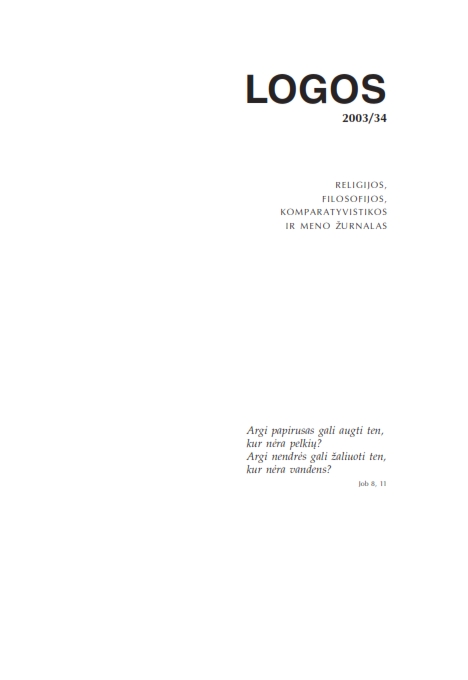Žodžio (vāc) teologija religinėje Indijos kultūroje
The Theology of the Word (vāc) in Indian Religious Culture
Author(s): Audrius BeinoriusSubject(s): Indian Philosophy, Philosophy of Religion, Philosophy of Language, Hermeneutics
Published by: Visuomeninė organizacija »LOGOS«
Keywords: Hinduism; Tantric theology; Indian linguistic tradition; comparative religious studies;
Summary/Abstract: The climax of a hermeneutics of synthesis and the sacred Verbum exegesis is represented in Tantric Kashmiri tradition and mainly in Abhinavagupta's works. In his Paratmika Vivarana, one of the most fascinating but also most difficult mystical texts of the Kashmir Saiva philosophy dealing with the theory and practice of mantra, Abhinavagupta presents a penetrating metaphysics of language and its various stages in relation to consciousness. The 50 letters of the Sanskrit alphabet, which are the smallest phonemic units into which speech can be analysed, are a symbolic expression of the principal elements of the activity of consciousness. While the Vedic mantras are comprised of complete sentences, the Tantric mantras are in the form of monosyllabic vocables only, technically called the bijamantras, in theory, are sonic manifestations of basic cosmic powers. The most interesting example of the association of the Sanskrit alphabet (vamamala) with the cosmology and activity of consciousness is Abhinavagupta's esoteric exegesis of the symbolic significance of the mantra A h a m, which in Sanskrit means “I” and symbolises by its form the dynamic nature of the Self. The mantric utterance gets singled out as the one form of discource that enables a human being to assert, to recognize (pratyabhijm) his freedom within the cosmic process by identifying himself with Šiva. The right mantra used in the proper way by a qualified person is believed to be a key that unlocks the Šaktic structure of the cosmos. Abhinavagupta's subtle speculation on the Word extends from its mystical dimension to the intricacies of the Sanskrit alphabet and linguistic speculation, from psychological subtleties to philosophical reasoning.
Journal: LOGOS - A Journal of Religion, Philosophy, Comparative Cultural Studies and Art
- Issue Year: 2003
- Issue No: 34
- Page Range: 123-136
- Page Count: 14
- Language: Lithuanian

